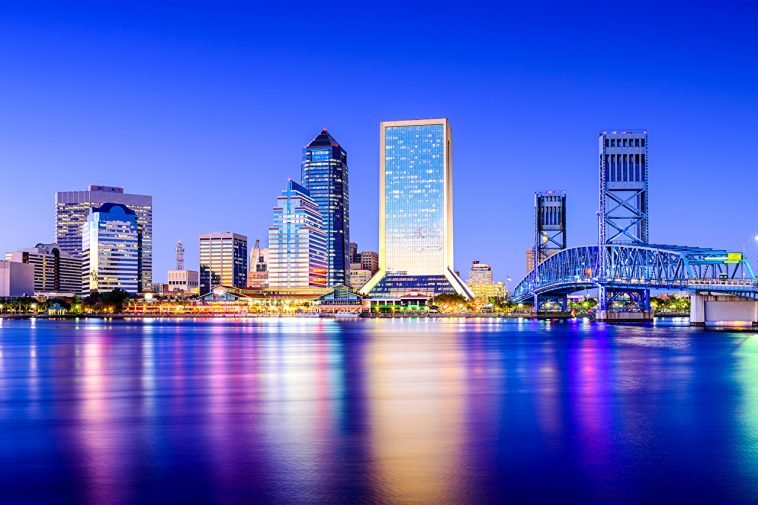Introduction.
As the effects of climate change become more visible across the globe, more people are considering how it might impact their lives and, specifically, the places they live.
From extreme weather events like floods, wildfires, and hurricanes to rising sea levels, it’s no surprise that many are wondering which cities in the US are the safest from the growing threat of climate change.
This question is crucial for those planning to move or even for those who just want peace of mind about the future of their hometown. With so many unpredictable factors, it can feel overwhelming to make the right decision.
But don’t worry—I’ve got you covered. In this post, we’re going to take a closer look at which cities in the US stand out as being relatively safe from climate change’s harshest effects.
We’ll look at factors like weather risks, geographical location, and other considerations, so you can get a clearer picture of where you might want to call home in the years ahead.
Understanding the Climate Change Threat
Climate change is a huge issue that affects every part of our world. It’s more than just an environmental crisis—it has real-world consequences for our daily lives.
In recent years, we’ve seen extreme heatwaves, more frequent wildfires, powerful hurricanes, and devastating floods. These are just some of the impacts caused by climate change.
But not every city in the US will experience these impacts in the same way. Geography plays a huge role in determining how a city might be affected.
For example, coastal cities may face rising sea levels, while cities in areas prone to wildfires may need to prepare for that risk.
The good news is, some cities are better prepared or are less vulnerable to these threats than others.
Which US Cities Are Safe from Climate Change?
Let’s break down some of the cities that are considered relatively safe from the major risks of climate change:
1. Buffalo, New York.
Buffalo is located near Lake Erie, and it’s one of the cities that tends to fly under the radar. While parts of the Northeast US do face flooding risks, Buffalo benefits from being further away from sea-level rise threats and major storm paths. The city also experiences relatively mild winters and a lower risk of wildfires.
Plus, it’s been getting attention for its impressive plans to become more sustainable and resilient to climate change in the future.
2. Portland, Maine.
Portland, Maine, is a small but vibrant coastal city that, despite being on the water, isn’t as prone to the same sea-level rise threats that other coastal cities like Miami or New York might face.
The city is positioned further north, so it’s less likely to be impacted by extreme heat waves, and it’s also got the added bonus of being located in an area with a relatively low risk of hurricanes and tornadoes.
3. Minneapolis, Minnesota.
Minneapolis is often mentioned as a safe haven from climate change, largely because of its location and overall resilience.
The city’s distance from coastal flooding and hurricane threats, combined with its abundant freshwater resources, means it’s less likely to face severe weather events.
Although it does have cold winters, it’s not prone to extreme heat waves, and its population can expect relatively mild effects from climate change over the next few decades.
4. Madison, Wisconsin.
Located in the heart of the Midwest, Madison has been gaining attention for its overall livability and low climate risks.
The city is inland, so it doesn’t face the risks that coastal cities do. It also has an average annual temperature that’s rising slower than in many other parts of the country, reducing the threat of extreme heat.
Additionally, with its location near many lakes, it has a reliable water supply, which could become an increasingly important asset in the future.
5. Burlington, Vermon.
Burlington is a small city that’s a favorite for those looking for a combination of low climate risk and quality of life.
With cold winters and mild summers, Burlington is unlikely to see major heat waves. Additionally, the city has a low risk of flooding, wildfires, and extreme storms.
As Vermont is known for its progressive sustainability efforts, Burlington also boasts a community that’s invested in reducing its carbon footprint, which is a huge advantage as climate change continues to worsen.
6. Denver, Colorad.
Located in the Rocky Mountains, Denver benefits from a dry, temperate climate and an absence of extreme weather conditions like hurricanes, wildfires, and flooding. It’s also at a higher elevation, making it less susceptible to rising sea levels.
However, Denver does face some risks with wildfires, and drought could be a concern in the coming years. But overall, compared to other US cities, it’s one of the safer options.
7. Salt Lake City, Utah.
Salt Lake City, positioned in a desert region, is likely to experience the effects of climate change a bit differently from other cities. While it may face higher temperatures, it’s not directly threatened by flooding or rising sea levels.
The city does see some air quality challenges during the winter months, but it’s otherwise relatively safe from extreme weather events like hurricanes or tornadoes.
8. Boise, Idaho.
Boise is another great city to consider for those worried about climate change. It’s inland, far from coastal flooding risks, and surrounded by mountains, which help reduce the potential impact of extreme weather events.
While the region may experience hotter summers, its overall resilience to extreme weather patterns, combined with lower population density, makes it a safe choice.
Factors to Consider When Choosing a Climate-Safe City
When choosing a city, it’s not only about which one’s safest but also about how it fits into your lifestyle and future plans. Here are some key factors to think about:
- Water Supply: Access to water is crucial as droughts and water shortages become more common.
- Geography: Areas far from the coast and away from tornado or wildfire zones are less vulnerable to climate-related disasters.
- Infrastructure: Cities that invest in green infrastructure, sustainable energy, and climate resilience are better equipped to handle future challenges.
- Community Resilience: Some cities have stronger communities with plans to adapt to climate change. This can mean better resources for evacuation, recovery, and adaptation.
FAQs
How can I prepare my home for climate change?
Investing in climate-proofing your home (like better insulation, flood barriers, and energy-efficient upgrades) is a good idea. It’s also helpful to have an emergency plan in place for extreme weather events.
Are there cities that will be completely safe from climate change?
Unfortunately, no place is completely immune to climate change, but some cities are better prepared and face fewer risks. It’s all about finding a balance between risks and opportunities for resilience.
Will moving to a safer city guarantee protection from climate change?
While some cities are less vulnerable to extreme weather events, it’s impossible to predict exactly what will happen in the future. It’s important to consider long-term resilience and adaptability when making a move.
Further Resources
- National Climate Assessment
- Climate Central: Mapping Climate Risk
- U.S. Environmental Protection Agency (EPA): Climate Change Adaptation
Conclusion
With climate change impacting cities across the US in different ways, it’s important to understand the risks and make informed decisions about where to live. While there are cities that are more resilient to certain climate threats, no place is 100% safe.
But by considering factors like geography, infrastructure, and community preparedness, you can find a place that offers the best chance for a climate-safe future.
Which city do you think will be the safest from climate change in the years to come?





GIPHY App Key not set. Please check settings